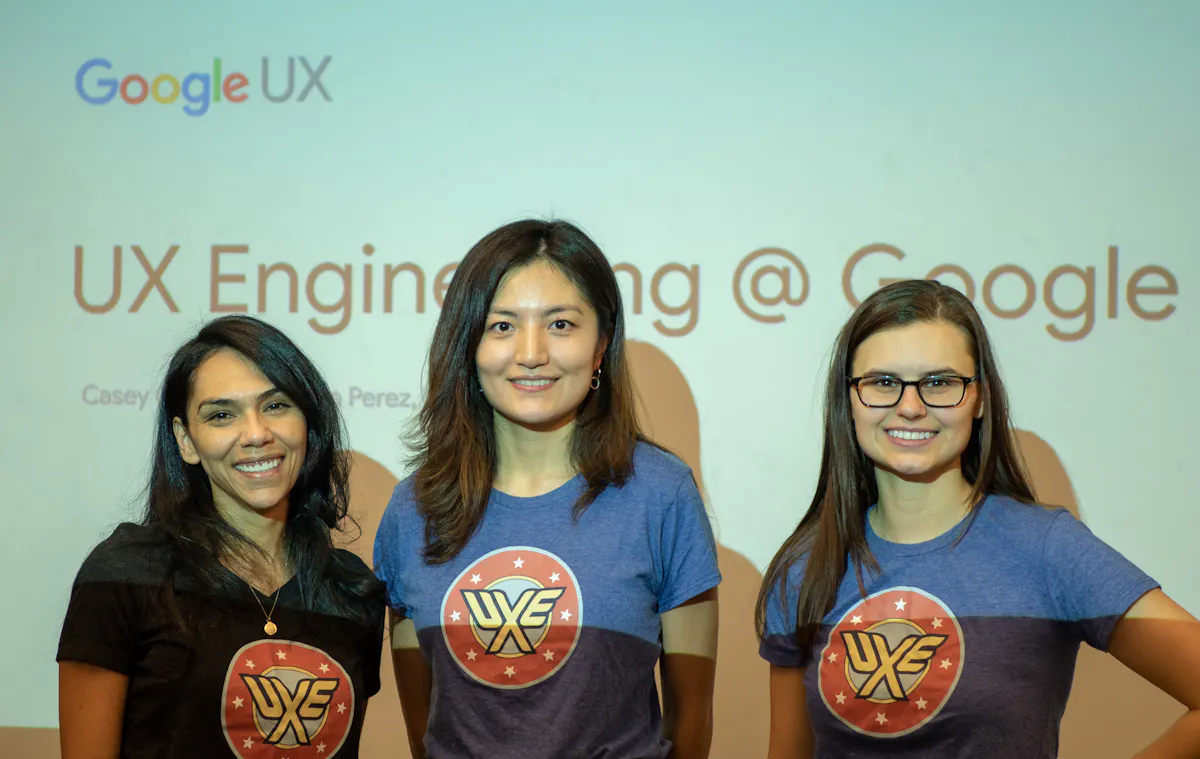Fill out the form to get more information about the Grace Hopper Program bootcamp of your choice.
10.27.2022
What It Takes to Be a UX Engineer at Google
By Emily Gregor

When you’re considering attending a coding bootcamp, one of the first steps is figuring out what you’d like to do after you graduate.
Do you want to be a front-end or back-end engineer? A mobile app developer? Something else?
If you’re having a tough time figuring it out, the Career Success team at Fullstack Academy can help you navigate your first move and even introduce you to careers you might not have thought of.
One job Fullstack Academy and Grace Hopper graduates are well-equipped to succeed at is UX engineering.
“You need to be a JavaScript expert, as that is the web's front-end language, but you also need to have design sensibilities, meaning you understand how to see things with an eye for detail, flow, and usability for the user.”
— Johanna Perez, UX Engineer at Google and 2015 Grace Hopper alum
A combination of a user-experience (UX) designer and a user-interface (UI) developer, a UX engineer is a fullstack developer who understands design.
The Grace Hopper Program recently hosted a panel of Google UX engineers, including Johanna Perez (who’s also a 2015 Grace Hopper grad!), Casey Caruso, and Iris Qu, to demystify and discuss the field of UX engineering and offer insight into the skills needed for the role, what the day-to-day is like, and more.

What Does a UX Engineer Do?
UX engineers, or UXEs, possess the skill set of a front-end or UI engineer, but they have a working knowledge of UX design principles.
“To be a successful UX engineer, you need to always be thinking as a user. A user experience engineer is a developer who specializes in solving user-interface design and implementation problems for user-facing features in products,” Johanna says.
Primarily focusing on the design/UI component layer of an application, UX engineers are needed in a variety of industries from AR and VR to finance and commerce, and the day-to-day is never the same.
“You need to be a JavaScript expert, as that is the web's front-end language, but you also need to have design sensibilities, meaning you understand how to see things with an eye for detail, flow, and usability for the user,” Johanna says.

What Skills Do You Need?
If you complete a software immersive program at Fullstack Academy or the Grace Hopper Program, you’ll already have many of the skills you need to be successful as a UX engineer.
Common responsibilities for a UX engineering job include:
- Collaborating with designers and stakeholders
- Developing realistic digital prototypes that will be used to guide design decisions, user research sessions, and product demonstrations
- Continuously iterating on prototypes based on feedback from research, product, and design
- Proficiency in JavaScript, HTML, and CSS
- Ability to develop independently with experience making decisions about which technology and frameworks to use for the goal of the prototype being built
- Experience crafting prototypes across a variety of platforms
Johanna also recommends being familiar with Material library or any other Google-specific libraries, like Python, and having a website or portfolio to showcase your work.

What Salary Can You Expect to Make as a UX Engineer?
According to Glassdoor, the average salary for a UX engineer in New York City is $89,044, while those interested in more senior-level UX engineering roles can expect salaries as high as $134,000.
These numbers show that UX engineering can not only be a fulfilling career, but it can also help you achieve your financial goals.
If you’re interested in helping design products that people love, UX engineering might be the perfect career for you.
Learn more about the many types of jobs available for people with software engineering training.


